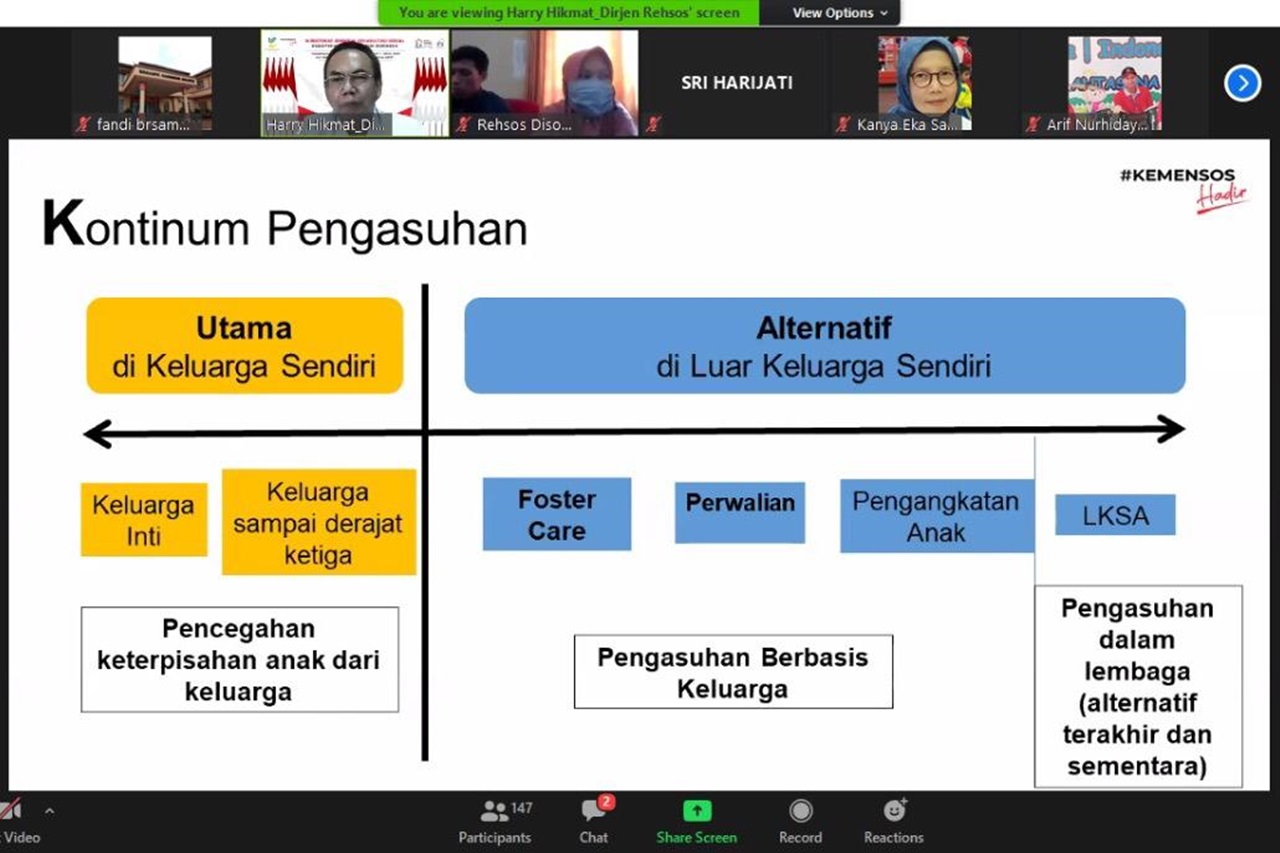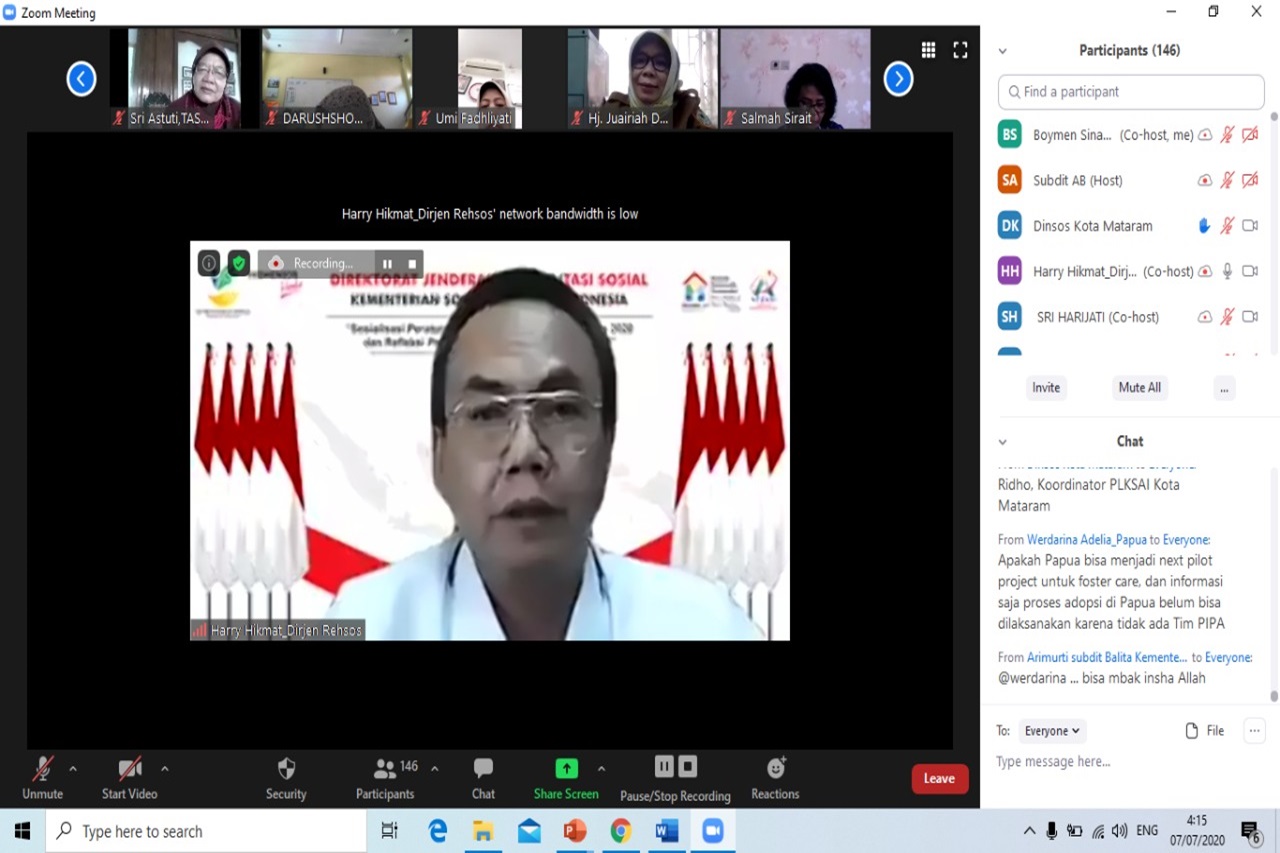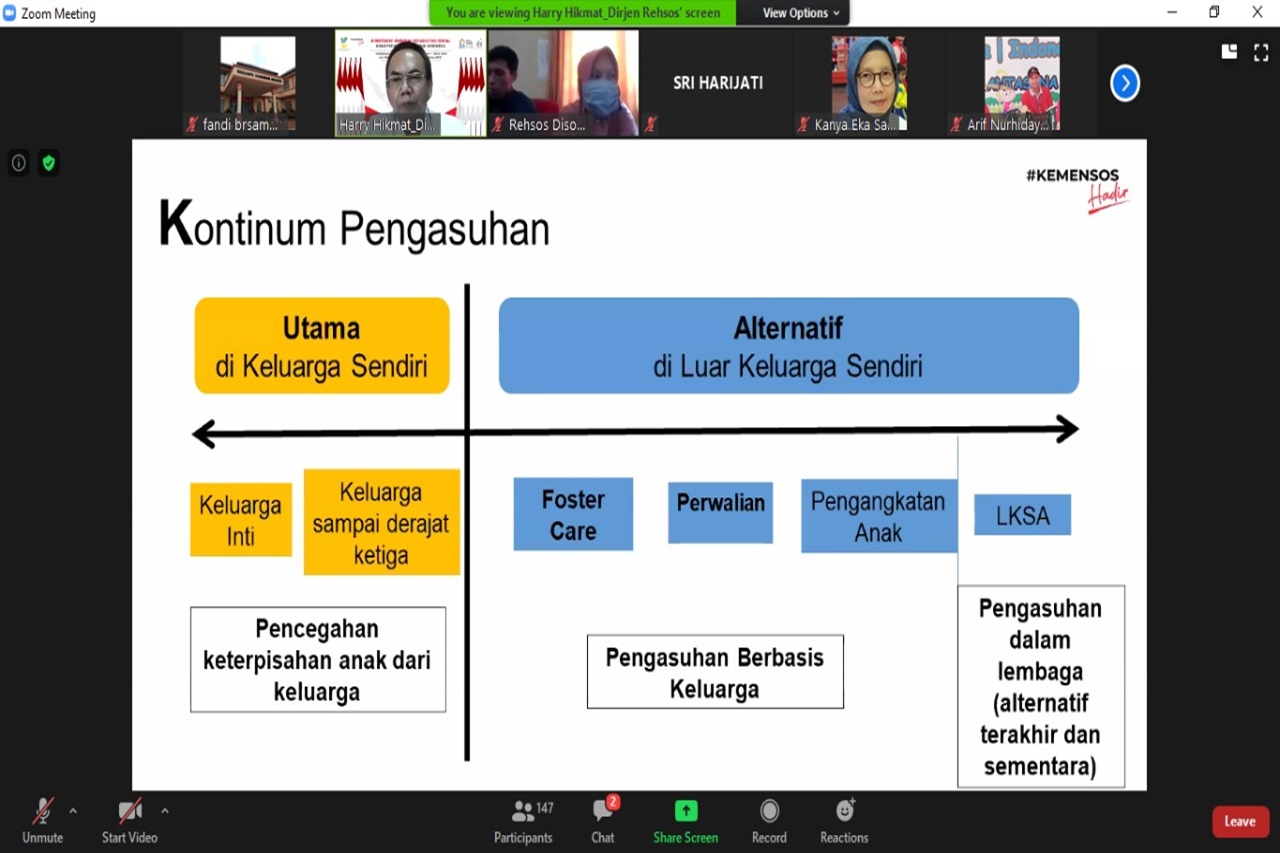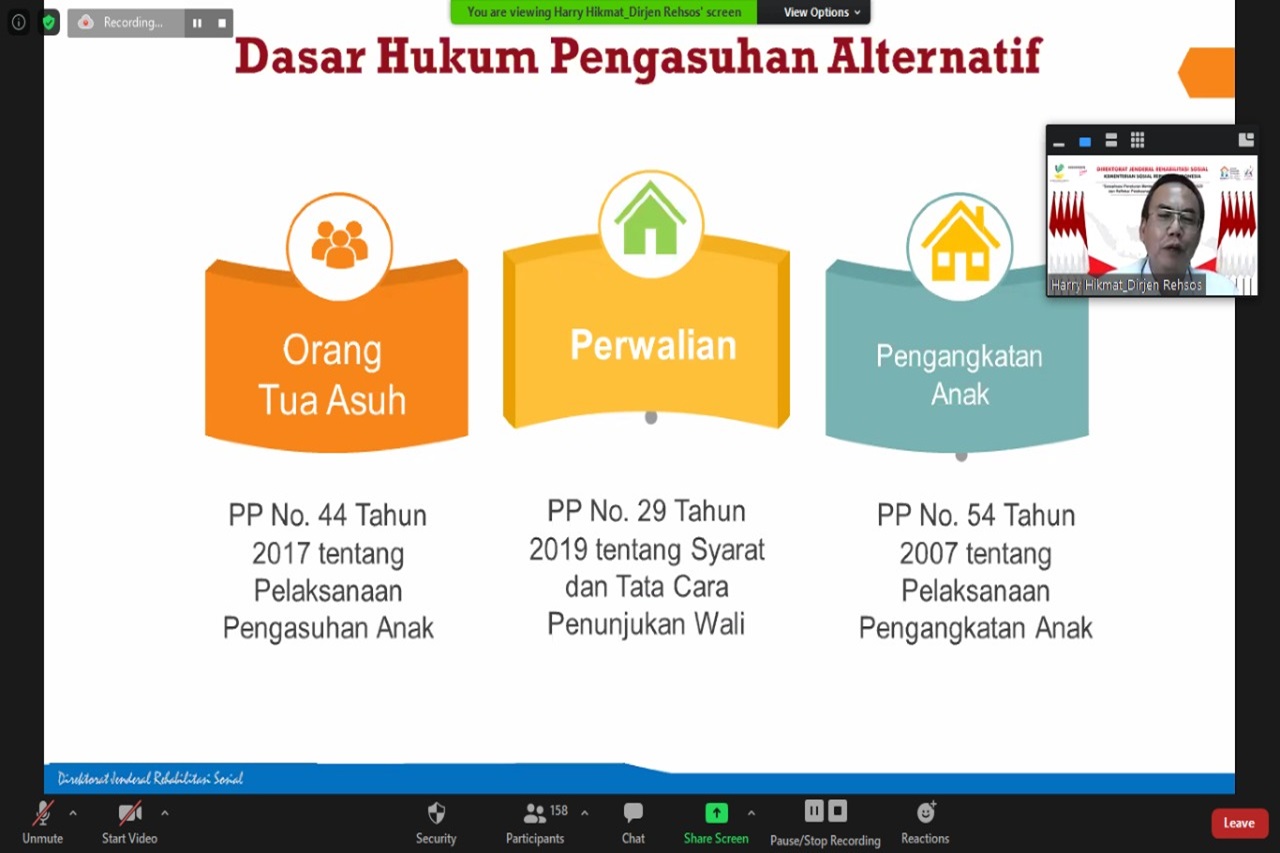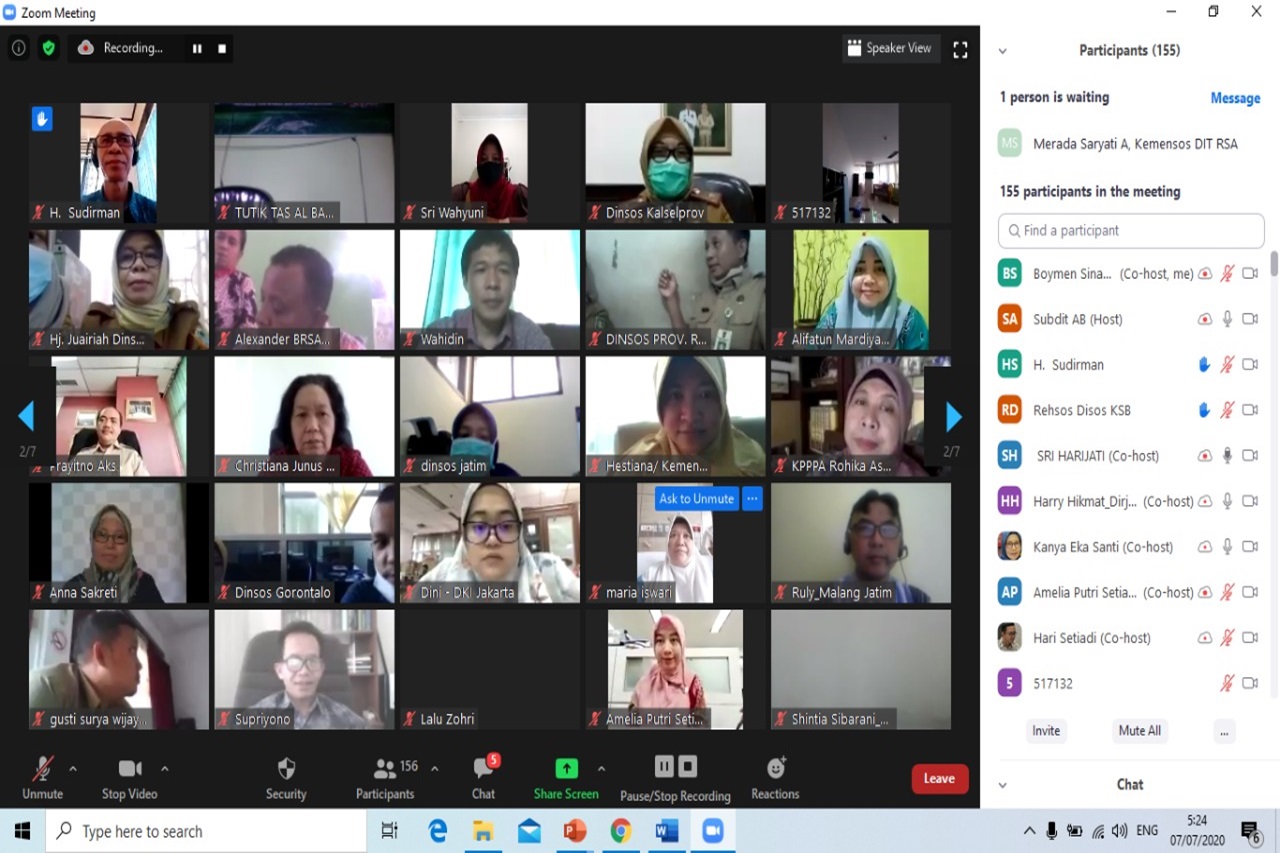JAKARTA (7 July 2020) - The Directorate of Children's Social Rehabilitation held a Reflection on the Implementation of Foster Care and Dissemination of the Minister of Social Affairs Regulation No. 1 of 2020 on Implementing Regulations of Government Regulation No. 44 of 2017 on concerning the Implementation of Child Care. This online activity was attended by 150 participants, consisting of the Provincial Social Service and Supervisors of Social Worker Service Units (Sakti Peksos) throughout Indonesia, LKSAs, and related ministries/institution.
The Director General of Social Rehabilitation, Harry Hikmat, in his directive said that every child has the right to be cared for by his own parents unless there are certain reasons for the best interests of the child. "The main purpose of social services for children is to strengthen the capacity of parents and families to carry out their responsibilities towards children and avoid separation from the family," said Harry.
Parenting through Foster Care is an effort to meet the needs for affection, attachment, safety, and well-being that are permanent and in the best interests of the child. "The Child Welfare Institution (LKSA) must act as an agent of change that can ensure that the family is the main factor in child care," said Harry.
LKSA cooperates with the government and related agencies in socializing the applicable rules so that families are more concerned with child care. "Family Responsible Child Protected," Harry insisted.
Director of Child Social Rehabilitation, Kanya Eka Santi explained that this activity was an evaluation of the pilot implementation of Foster Care in 2019. "The Ministry of Social Affairs has carried out a trial of Foster Care in West Java, Aceh, Yogyakarta. In 2020, the plan is to expand to five regions," explained Kanya.
Kanya explained that the Child Care Institution (LPA) as a social welfare institution has the authority to carry out the nomination process for Prospective Foster Parents (COTAS) and Prospective Foster Children (CAA). "This LPA is a kind of foster care agency that has been established through a Decree from the Ministry of Social Affairs as a childcare institution according to the criteria and requirements.
Ihsan Tanjung, Technical Assistance reminded about the need for management and administrative support for LPA and Foster Care Institutions (LAA) as institutions that support the implementation of Foster Care. "This is a challenge for us so that Foster Care is different from Adoption. Our goal is to increase the number of children being cared for by families under the monitoring of social workers," said Ihsan.
Regarding the evaluation of the implementation of Foster Care delivered by the Bandung City Poverty Reduction Office, Pipin Latifah revealed the mechanism from assessment to the issuance of the Child Care Decree. "The technical problem we face is that prospective foster parents have not completed the required documents," said Pipin.
The procedure for child care by foster parents is explained by Maria Sri Iswari, Technical Assistance that submitting an application and completing documents at LPA only takes 14 working days. After going through various stages, the Social Service Agency and LPA decided to place foster children.
The chairman of the Sayangi Tunas Cilik Foundation, Tata Sudrajat, mentioned a key message for the Ministry of Social Affairs and the Provincial/District/City Social Services regarding child care. "In implementing Foster Care, we must demonstrate accountability and mobilize resources," said Tata.
The hope for the importance of LPA was conveyed by the Chairman of the Muhammadiyah Bandung Healthy Baby Orphanage as well as the Chairman of the LKSA National Forum, Yanto Mulya Pibiwanto. Yanto said there were 11 babies, 14 toddlers and 85 children being cared for in his institution. However, as many as 239 children have returned to the care of their respective families. Hopefully with this Foster Care, Indonesian children will be more advanced and qualified," hoped Yanto.
At the end of the event, the Director of Child Social Rehabilitation appealed to all parties to collaborate in implementing Foster Care to encourage children to remain in family care. "Through today's reflection, hopefully Foster Care will be able to fill the needs of children who need family care and improve the mechanism," said Kanya.
 English
English
 Bahasa
Bahasa

